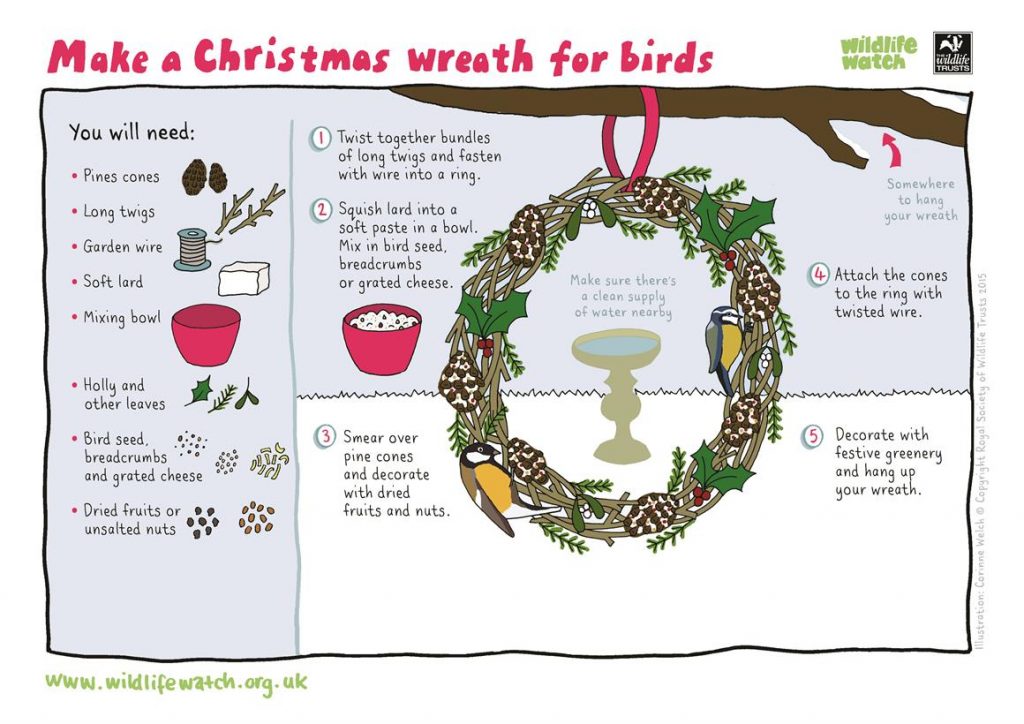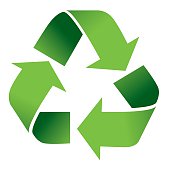Introduction
Over the last several years we have had some fantastic eco-committees who have worked extremely hard in helping to make our school a very special place. They have helped us to win lots of awards, including the special Platinum Award. However, we still have plenty of work to do if we want to make our school and community even more environmentally friendly. Do you think that you could help us to achieve this? If so, we would like to hear from you.
*************************

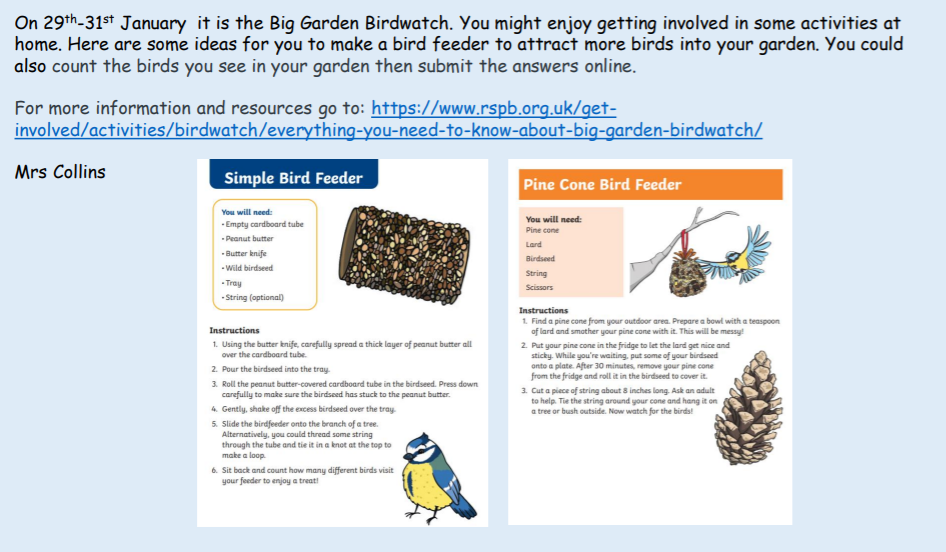
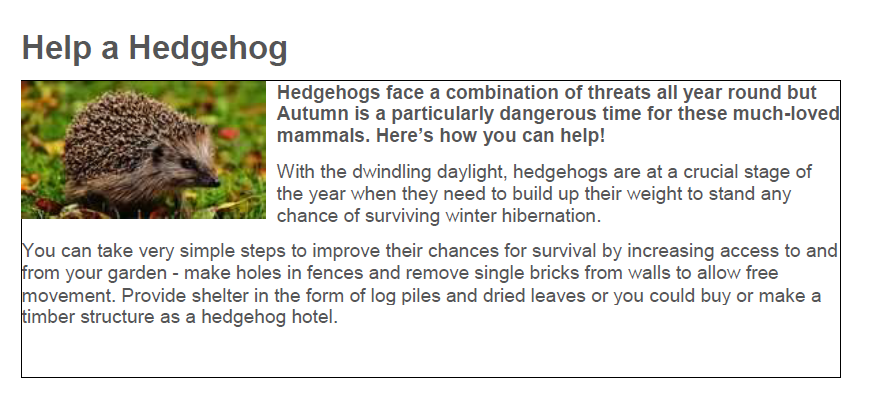
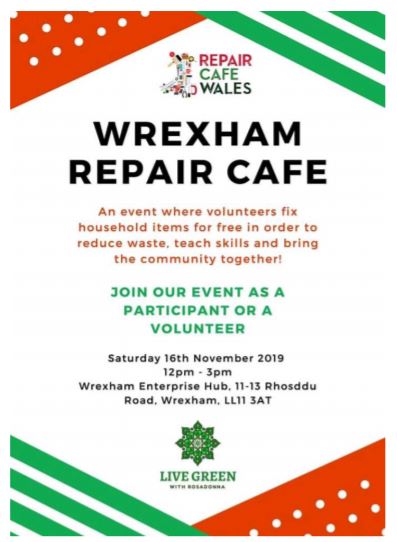
*************************
Spring 2019
We did it! Good work everyone!
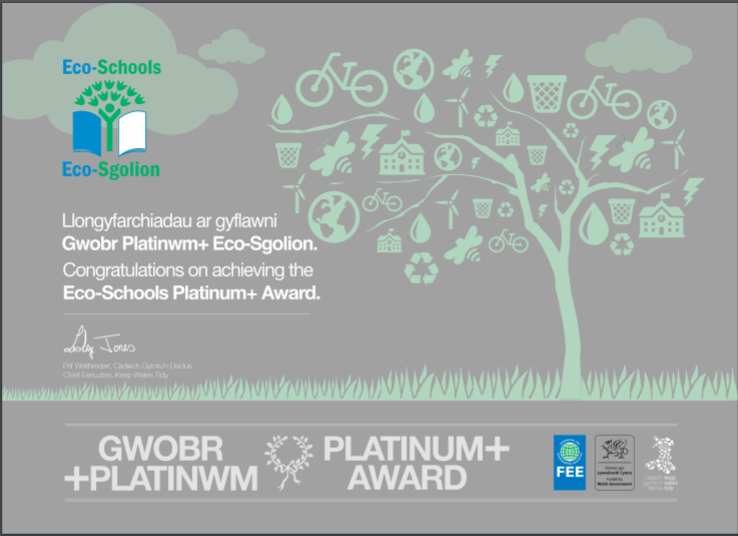
**********************************************
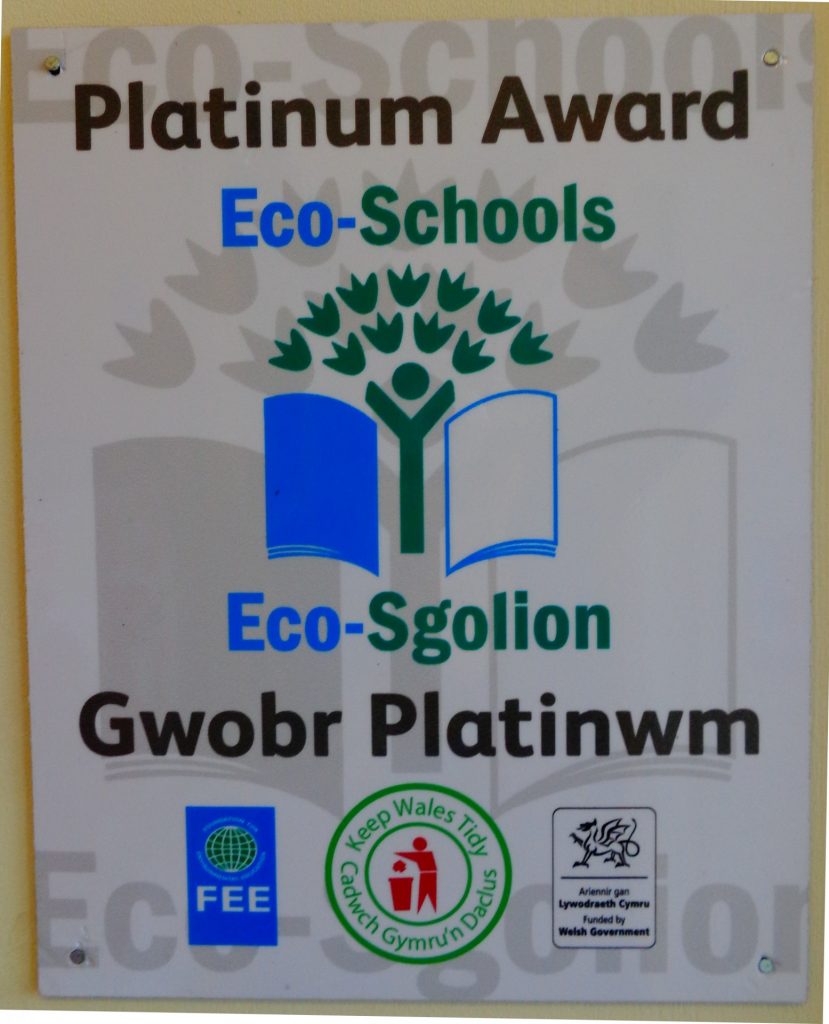
**********************************************
Our Achievements
We are always on the lookout for new ideas and extra helpers to make our school environment an even better place than it is today.
Our 10 Eco Priorities | |
| Priority | How we are addressing this at Eyton |
| Marine | · We have replaced many of our old plastic/metallic Christmas decorations with newspaper paper chains.
· The school now use paper straws instead of plastic for after school events |
| Biodiversity | · We participate in national bird watching and plant growing surveys.
· We have planted over a hundred trees and bushes to attract new wildlife. · We have created lots of different habitats around the school, including a huge wildlife area and orchard. |
| Energy | · We have a new economical photocopier and printer that save on electricity and ink.
· We have energy saving lights throughout the school. · We have energy saving double glazing fitted throughout the school. · We regularly check that we don’t waste electricity or water. |
| Litter | · We have rubbish bins around the school grounds and regularly have litter surveys.
· New litter pickers were bought October 2018 |
| Waste | · Paper recycling bins in each classroom.
· We recycle cardboard, plastic and cans, clothes, Christmas cards, printer cartridges and much more. · We have our very own recycling bank in the gazebo. · We try and re-use all the materials in school. · We regularly check that we don’t waste electricity or water. |
| Water | · Key Stage Two children have a water bottle station by their classrooms.
· We have water towers in the corridors to top-up our bottles. · We regularly check that we don’t waste electricity or water. · We re-use rain water from our water butt. · We have pressure taps fitted to save on water. |
| School Grounds | · We have great outdoor activities to use at break-times.
· We produce our own compost. · We produce and sell our own vegetables. |
| Healthy Living | · We have a special eco-code to remind us about our environment.
· We visit places of special interest and invite ‘eco-friendly’ people into school. · We have won lots of healthy schools awards and we are a very healthy school and do lots of different sporting and fun activities. |
| Transport | · We try and share lifts to school and walk whenever possible.
· Year 6 have cycling proficiency lessons to promote safe cycling |
| Global Citizenship | · We have friends in schools in Nepal and we share letters and information with each other.
· We have regular fund raising events for local and national charities. · We celebrate our Welsh culture and are aware of how beautiful and unique our country is. |
**********************************************
Our latest project (Spring 2019)
Following our latest review we have highlighted Plastic as our project. Here you will find lots of information on how you can reduce the amount of single use plastics you use as a family. Thank you for your support.
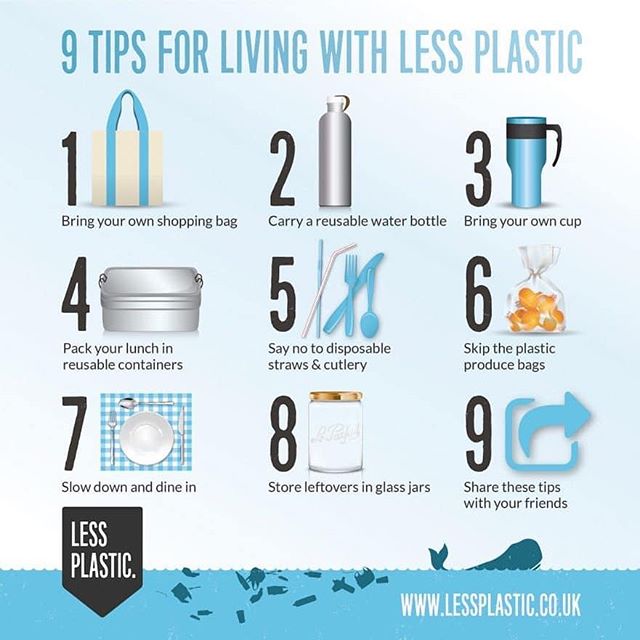
Not so fantastic plastic?
‘The Education Secretary has urged all schools to eliminate their use of single use plastics by 2022.
Damian Hinds has called on senior leaders in schools to stop using items such as plastic bags, straws, bottles and food packaging in favour of sustainable alternatives, and invited them to start a conversation with pupils about the effects discarded plastics have on the environment and wildlife.’
Can you go plastic free?
Single-use plastics, or disposable plastics, are used only once before they are thrown away or recycled. These items are things like plastic bags, straws, coffee stirrers, soda and water bottles and most food packaging.
We produce roughly 300 million tons of plastic each year and half of it is disposable! World-wide only 10-13% of plastic items are recycled. The nature of petroleum based disposable plastic makes it difficult to recycle and they have to add new virgin materials and chemicals to it to do so. Additionally there are a limited number of items that recycled plastic can be used.
Petroleum based plastic is not biodegradable and usually goes into a landfill where it is buried or it gets into the water and finds its way into the ocean. Although plastic will not biodegrade (decompose into natural substance like soil,) it will degrade (break down) into tiny particles after many years. In the process of breaking down, it releases toxic chemicals (additives that were used to shape and harden the plastic) which make their way into our food and water supply.
What can we do at school?
Milk
– Opt for large containers of milk and decant into cups which can be washed and reused. Less waste than individual cartons and plastic straws
Opt for school dinners
– less packaging than individual lunches
Packed Lunch
– Opt for fresh fruit and veg for snacks (no nasty packaging and so much for better for the planet.)
–Try and prepare ahead and use reusable and reseal able snack pots, these are also good for helping to portion food
–Bulk buy – often less packaging and cheaper too (If you do not have reusable snack pots, opt for foil instead of cling film, which can be recycled)
Reusable water bottles – promote water filling stations situated in school. A lot of businesses will also refill your bottles for free when out and about (also a lot healthier than fizzy pop and flavoured waters)
In the staff room/out and about ….
Tea bags – Check if your teabags are bio degradable (some teabag material has plastic in it)
Pens – Opt for refillable pens, or the humble pencil instead of single use biros
Reusable drink containers – have one on you handy when you’re out and grabbing a takeaway drink, some retailers also offer a discount when you use your own
Cutlery – ditch the single use plastic cutlery when out and about and grab yourself a reusable spork to carry with you
Takeaway – can you provide your own container, or do they use biodegradable items?
Canvas tote bags – always have one handy on you, saves using plastic ones and seem to last forever
**********************************************
**********************************************
Our Eco Code
‘TO A FUTURE THAT BELONGS TO US’
YSGOL EYTON ECO-CODE
- Keep our school environment litter free.
- Treat all our wildlife with great respect.
- Ensure that all light switches and appliances, including computers are turned off when not needed.
- Educate parents about recycling in the home.
- Always use the correct recycling bin and don’t throw anything away unless it can’t be recycled.
- Get involved with looking after the Millennium Garden, such as composting, planting and maintenance.
- Check that water taps are turned off properly and that rainwater is used effectively.
- When possible, open the windows instead of using air-conditioning.
- Keep healthy by regular exercise, drinking lots of water and eating a healthy diet.
- Encourage parents and relatives to share transport whenever possible.
- Help family and friends understanding about our environment by informing them of projects and progress that we make.
We have fun!
**********************************************
